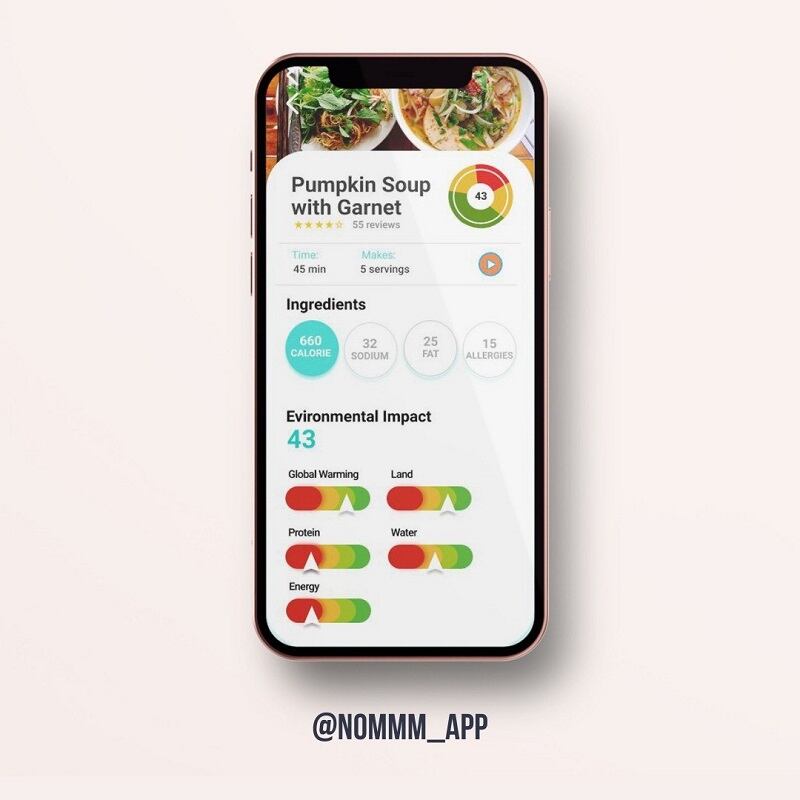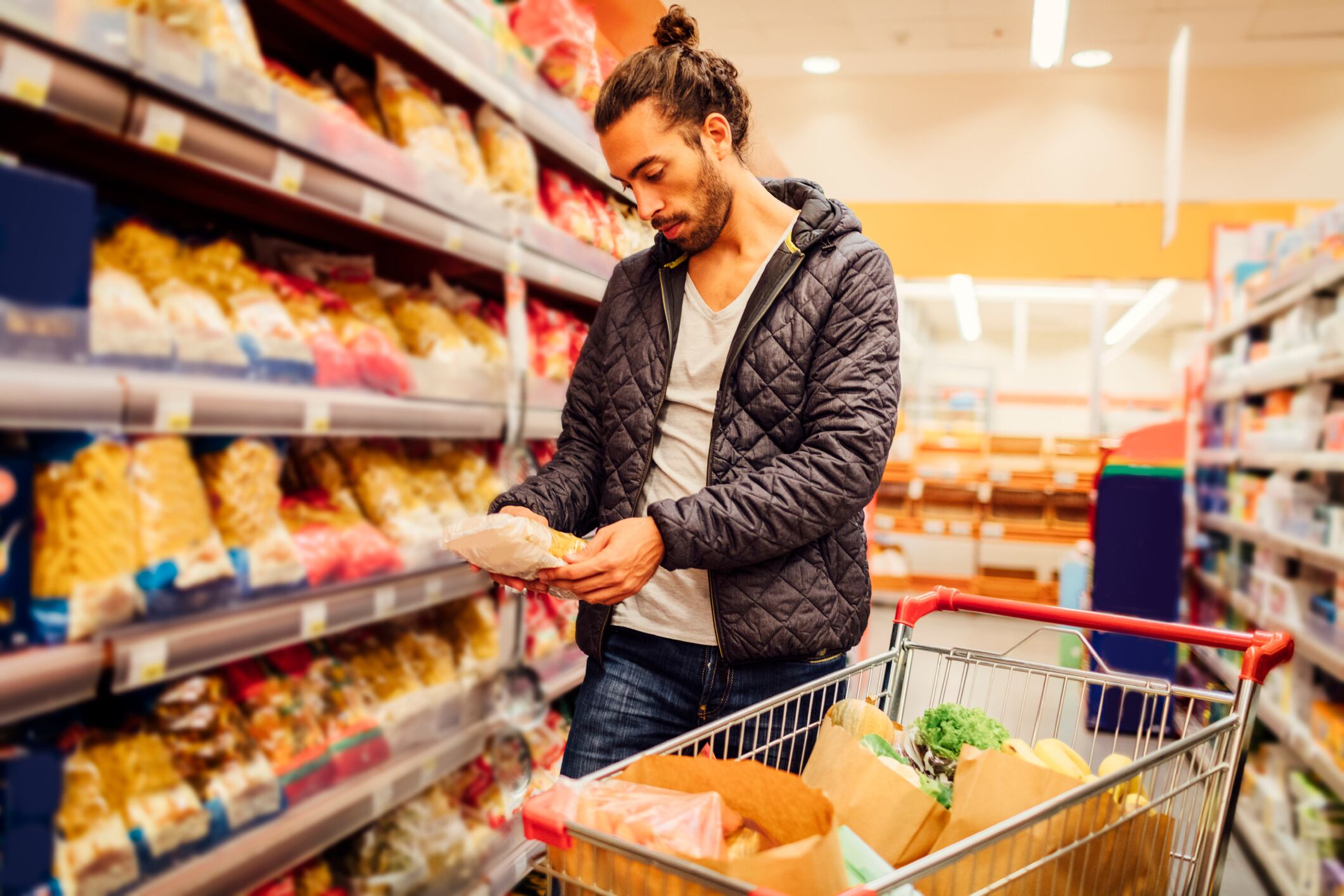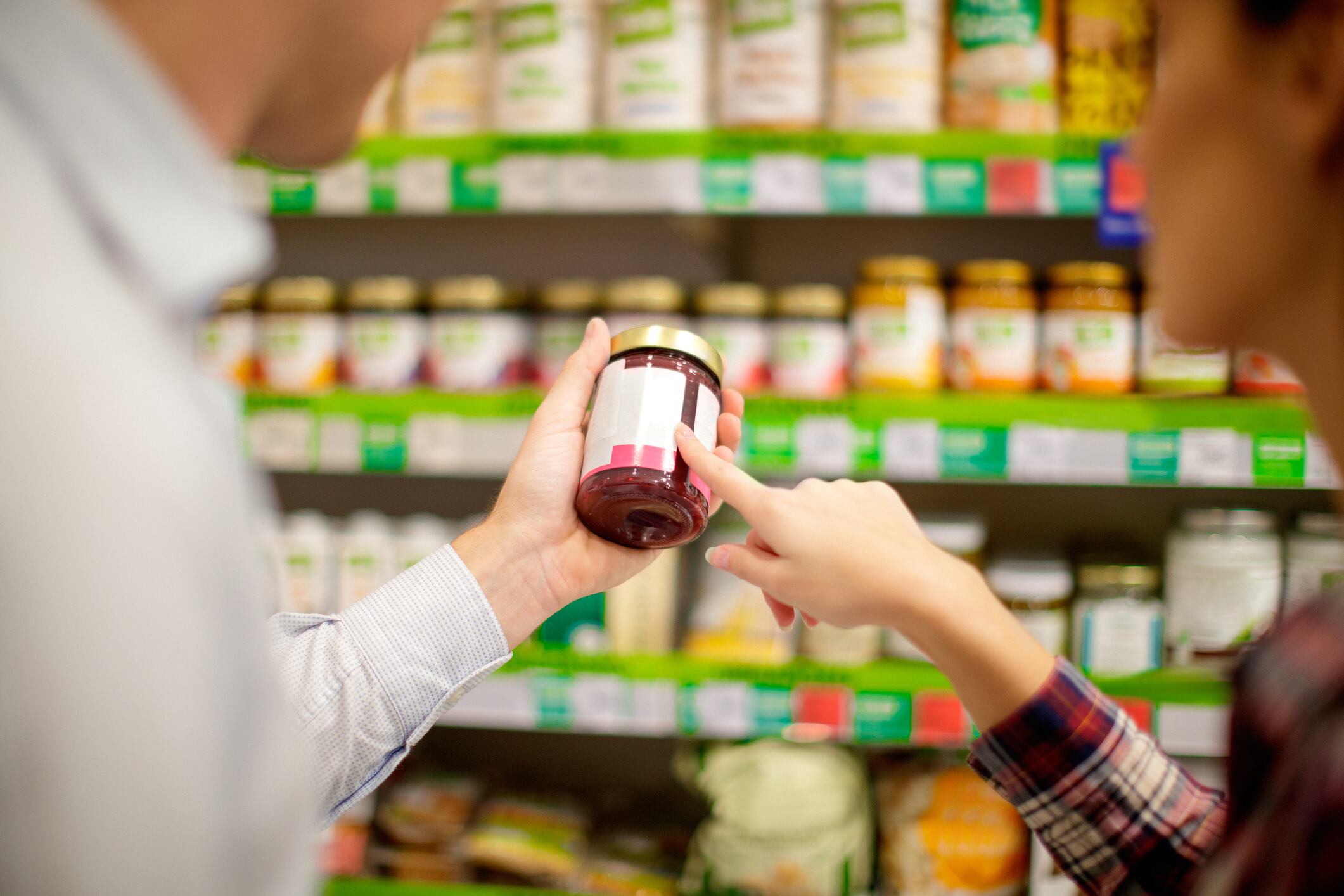There are now almost 460 eco labels globally, with over 120 different types of front-of-pack labels in use on food and drink products, offering to provide shoppers with greater information about the environmental footprint of food.
Last year saw the launch of Eco-Score, billed as a kind of environmental equivalent to Nutri-Score. That’s been trialled by big names in European retail such as Colruyt and Lidl. Also unveiled was the Nestle-backed labelling system from Foundation Earth.
In a nutshell, these labels work by using life cycle assessments to calculate a product’s environmental impact, using indicators including carbon, water use, water pollution and biodiversity, which is then communicated to consumers as a single letter or score on front-of-pack.
In the wake of these launches, analysts anticipated a trend of emerging challenger environmental labels to stream into the market.
In this vein, a UK start-up called Nommm has launched both physical and digital labels intended to give consumers a more nuanced understanding of a product’s environmental impact.
Via an app, shoppers can browse meals in stores and find out how good they are for the planet. While one single environmental impact score is given, there are also separate scores for different environmental impacts, namely global warming potential, land occupation, freshwater demand, protein efficiency, energy efficiency and seasonality.
Founder Heather Mitchell said that measurements of food must go beyond just carbon to show the full impact of the earth's ‘most treasured’ resources.
“Carbon scores' have proven to be unrelatable for people outside of the core environmental community,” she said. “The relatability of how positive or negative a food is based on their carbon score is alienating people who don't truly understand the intricacies of the relationship between carbon and food which only serves as a gimmick and doesn't truly engage community in the educational side of what climate impact labels should really be there for.”
By showing the separated environmental impacts it allows people to connect with the label based on their personal interest which hugely increases engagement, she told us. “Everybody has that one touch point which engages them with sustainability and environmentalism. For some it may be animal welfare, for others they might be truly devastated and impacted by deforestation or the scarcity of fresh water. If we really are to successfully fight against environmental degradation we must leverage all sides of interest instead of expecting the general public to come together on just carbon.”
Nommm measures these impacts via a team of researchers, both PHD students and climate scientists, who aggregate values from already published works. In the future it hopes to calculate other sustainability measurements such as a product’s social impact.
It also offers bespoke measurements such as a calculation of the efficiency of protein intake per meal. “We often overeat protein, causing a heavy demand on food production and we wanted to shed light on this which is seldom included in carbon scores,” explained the entrepreneur.

One challenge for climate labelling is how strike a balance between what is effective and what is practical. One risk, for example, is that only those already ‘environmentally conscious’ people who will read them. “Our climate impact labelling software can both help consumers in engaging with measures of sustainability, but it is also useful for the actual retailer,” responded Mitchell. “Our software can be used by retailers, recipe developers and others in the industry to audit the sustainability of what they're creating, helping to intercept at the source of creation.”
The digital focus of Nommm’s labels, she added, allows it to work quickly and with flexibility. “This is attractive to our customers and is representative of how a start-up can overcome the barriers of bureaucracy keeping the planet at heart,” she claimed.
Analysts have also warned there is a risk that too many eco-labels on the market, and calculated differently, will confuse people and ultimately limit transparency. But variety can be a good thing, we were told. “There has to be leaders in the space of working to have consistent labels and impact data,” noted Mitchell, “but equally there isn’t consistency in how ‘truthfully’ they want to present this. So I think it’s a good thing to have variation in the same way that there any many differences between nutritional information even between doctors and nutritionist. Some measures of sustainability often clash eg. People arguing the animal welfare of grass-fed animals clashing with the demand on land.
“We don’t want important metrics/considerations to be heavily diluted in a large standardisation as we feel it’ll silence some important considerations to please government and or other corporations.”
Labels displaying a product’s environmental impact could be an important piece of the puzzle as the industry attempts to cut its environmental impact. The founder told us the start-up’s end goal is a combination of better transparency for shoppers; a better way for food brands to communicate their eco credentials; ‘better’ consumer buying habits and reformulated food products with more sustainable ingredients across the board with a lower eco footprint.
“Our mission is to rethink our current food system, from encouraging a culture of consumers to engage with sustainable measurements of food and giving ethical products/companies a platform to communicate green credentials to the community,” Mitchell said. “On an educational level we want to improve the visibility of climate impact information that includes all walks of society. We believe people deserve the tools and resources to engage with the fight against climate change, starting with their food.”




